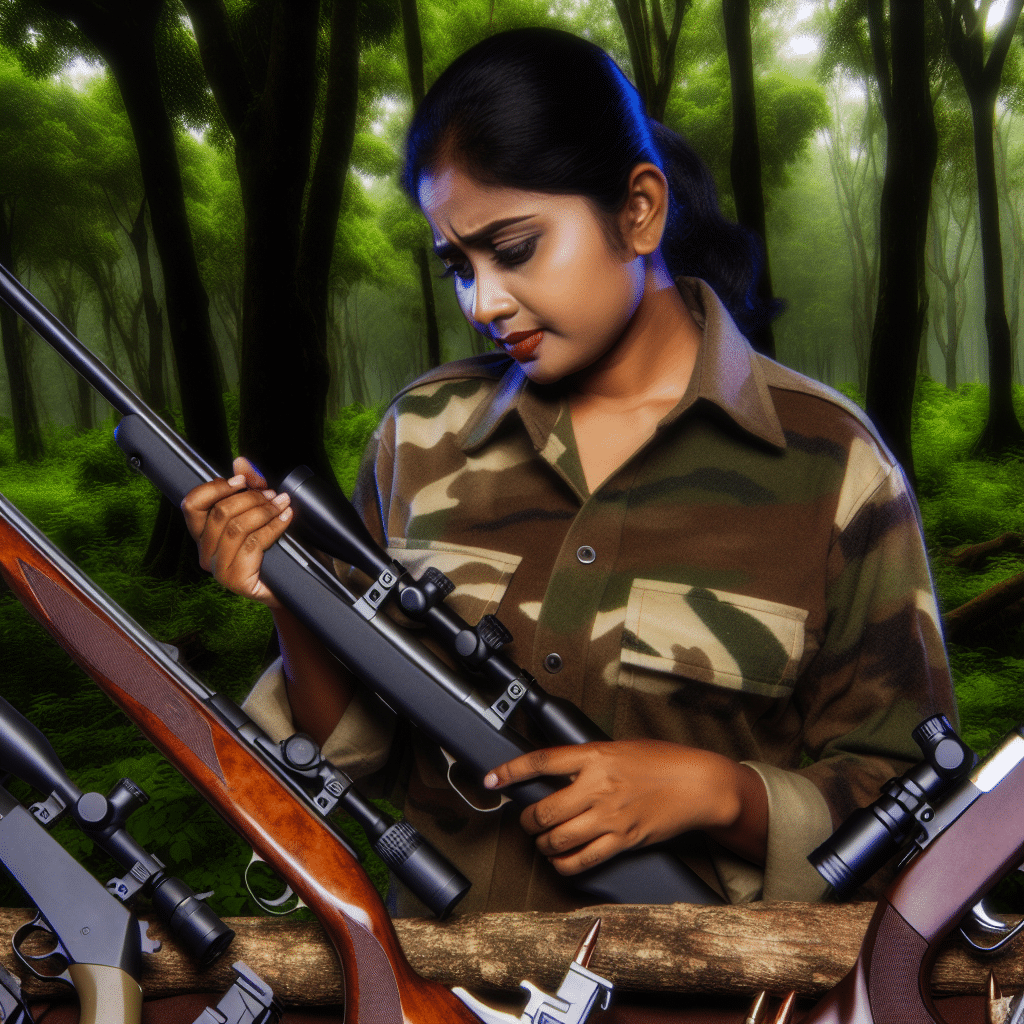Selecting the right firearm for hunting is a crucial decision, one that can significantly impact your success and safety in the field. The abundance of choices can be overwhelming, from various calibers and models to different brands and accessories. So, what should you check before choosing a firearm for hunting? This comprehensive guide delves into the essential factors to consider to ensure you make an informed decision.
Understanding Your Hunting Needs
What Game Are You Hunting?
The type of game you plan to hunt directly influences the kind of firearm you should choose. Smaller game such as rabbits or birds generally require lighter, smaller caliber firearms, while larger game like deer or elk may necessitate a more powerful rifle. It’s essential to match the firearm’s capabilities to the size and type of game for a humane and effective hunt.
What Are the Hunting Conditions?
The environment and conditions under which you will be hunting also play a significant role. Will you be hunting in dense woods, open plains, or mountainous regions? The terrain can dictate the type of firearm you need. For instance, a lightweight, easily maneuverable rifle may be better suited for dense forests, whereas a long-range, high-powered rifle could be more appropriate for open plains.
Firearm Types and Calibers
Rifles, Shotguns, or Handguns?
Understanding the different types of firearms is crucial:
1. **Rifles**: Known for their precision and range, rifles are the go-to choice for hunting large game.
2. **Shotguns**: Versatile and effective for close-range hunting, shotguns are ideal for birds and small game.
3. **Handguns**: Generally used for very close-range hunting or as a backup firearm.
Each type has its own set of advantages and disadvantages, so your choice should align with your hunting needs.
Caliber Consideration
The caliber of a firearm is another critical factor. Larger calibers offer more stopping power but can also have more recoil and be heavier. Common calibers for hunting include:
– **.22 LR**: Suitable for small game and target practice.
– **.270 Winchester**: Versatile for medium to large game.
– **.30-06 Springfield**: Popular for big game hunting.
Choosing the right caliber involves balancing the power of the firearm with your ability to handle recoil and the requirements of the game you’re hunting.
Ergonomics and Fit
How Does It Feel?
The fit and feel of a firearm are highly personalized. A firearm that is comfortable for one hunter may not be suitable for another. When assessing fit, consider:
– **Length of Pull**: The distance from the butt of the rifle to the trigger. Ensure it feels natural and comfortable.
– **Weight**: Heavier firearms offer more stability but can be tiring to carry.
– **Balance**: The firearm should be well-balanced to aid in accurate shooting.
Testing different firearms at a range before making a purchase is advisable to find the one that feels right for you.
Reliability and Build Quality
Is It Built to Last?
Durability and reliability are non-negotiable when it comes to hunting firearms. Look for reputable brands known for their quality and dependability. Pay attention to:
– **Materials**: Firearms made of high-quality steel and synthetic materials tend to be more durable.
– **Craftsmanship**: Check for a well-constructed firearm with no loose parts or blemishes.
– **Manufacturer’s Warranty**: A good warranty can be an indicator of the manufacturer’s confidence in their product.
Optics and Accessories
What Extras Do You Need?
A firearm’s effectiveness can be significantly enhanced with the right optics and accessories. Consider:
– **Scopes**: Essential for accuracy, especially at longer ranges. Choose scopes with clear optics and reliable adjustments.
– **Sling**: A good sling can make carrying your firearm more comfortable.
– **Bipods and Rests**: Useful for stabilizing your firearm for more accurate long-range shots.
Ensure that the firearm you choose is compatible with the accessories you plan to use.
Legal Considerations
Is It Legal?
Before purchasing any firearm, familiarize yourself with local hunting regulations and firearm laws. This includes:
– **Permits and Licenses**: Ensure you have the necessary permits for both owning and carrying the firearm.
– **Seasonal Restrictions**: Some hunting seasons may have restrictions on the type of firearms that can be used.
– **Game Laws**: Different game animals may have specific firearm and caliber requirements.
Failure to comply with legal requirements can result in significant penalties and jeopardize your hunting privileges.
Practice and Proficiency
Can You Use It Effectively?
Lastly, proficiency with your chosen firearm is paramount. Regular practice at the shooting range is essential to:
– **Develop Accuracy**: Understand the firearm’s capabilities and limitations.
– **Build Confidence**: Be comfortable and confident in handling your firearm.
– **Ensure Safety**: Familiarize yourself with safety protocols to prevent accidents.
In conclusion, what should you check before choosing a firearm for hunting? A comprehensive evaluation of your hunting needs, the type of game, firearm types and calibers, ergonomics, reliability, accessories, legal considerations, and your proficiency with the firearm are essential. By thoroughly assessing these factors, you can make an informed decision that enhances your hunting experience and ensures safety and success in the field.




